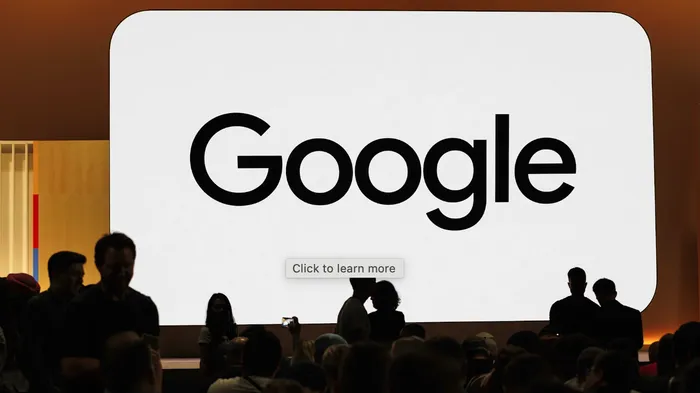
.
Image: Juliana Yamada, File/AP Photo
South Africa’s independent media sector is getting a much-needed shot in the arm, but it comes amid rising pressure for Big Tech to pay its dues.
This week, the newly launched Digital News Transformation Fund, a R144 million initiative backed by Google and the Association of Independent Publishers (AIP), announced its inaugural Board. The fund aims to modernise and stabilise small and medium-sized publishers, particularly those operating in underserved languages and communities.
Administered by Tshikululu Social Investments, the Fund is designed to back projects that strengthen newsroom operations, grow audiences, and diversify income, everything from CMS overhauls to piloting new revenue models. With a first call for proposals expected in August, the appointment of the Board signals a formal beginning.
“This Fund is a crucial step,” Anetta Mangxaba, Co-Chair of the Fund’s Board, said.
“Independent publishers, big and small, urban and rural, across all our languages, are the backbone of local democracy. We’re often the first to tell our communities’ stories and the last to leave when the spotlight fades,” she added.
But this announcement comes just months after the release of the Competition Commission’s Media and Digital Platforms Market Inquiry (MDPMI) provisional report, which paints a much broader and more troubling picture of the digital media economy.
According to the report, Google earns an estimated R800 to R900 million annually from South African news content, while simultaneously destroying R160 to R200 million in potential value for local media houses.
The inquiry found that South African publishers lose between R300 and R500 million per year in shared value imbalance, money that should rightfully stay within the local media ecosystem.
“Our assessment is that the imbalance in the share of total value is around R300 to R500 million annually,” said Paula Fray, a panel member at the Commission.
She emphasised that while search engines like Google help amplify local journalism, they also contribute significantly to its commercial decline, particularly through biased algorithms that prioritise international outlets.
In this light, the R144 million Digital News Transformation Fund is a welcome, but not nearly sufficient intervention.
Critics argue it’s only a starting point. Still, those involved in the Fund see it as a vehicle for change.
Leanne Kunz, the Fund’s newly appointed Head, is focused on building long-term resilience.
“We’re not just funding ideas, we’re investing in capability,” she said.
“That means grants will always be paired with hands-on mentorship, peer learning, and skills development.”
The Fund’s structure has apparently been designed to ensure transparency and independence.
While the Board will provide strategic oversight, funding decisions will be made by an independent Adjudication Committee, guided by a clear eligibility framework.
A government representative is expected to be appointed to the Board shortly.
For South Africa’s community-driven and local-language outlets, long overlooked in the national media agenda, this could be transformative. But whether this Fund will plug the gap left by the digital advertising economy remains to be seen.
What’s clear is this: Google needs to pay more. That’s the growing sentiment among South African media leaders, regulators, and publishers alike.
Vincent Maher (Co-Chair)
Maher is a veteran digital strategist and entrepreneur, currently serving as CEO of Broadbrand, a digital transformation agency. Previously, he held senior roles in some of South Africa’s most high-impact digital ventures, including Chief Innovation Officer at 24.com and Group Head of Digital at Kagiso Media.
Anetta Mangxaba (Co-Chair)
As Chair of the Association of Independent Publishers, she represents the interests of South Africa’s small and community-based publishers. Mangxaba is also the CEO of Dizindaba Media, a grassroots publishing house focused on multilingual content. Mangxaba’s experience spans community journalism, publishing, and policy advocacy.
Styli Charalambous (Board member)
Charalambous is the co-founder and CEO of the Daily Maverick. Originally a Chartered Accountant, Styli transitioned from investment banking in London to make a mark in South Africa’s media innovation scene.
Marietta Lombard (Board member)
Lombard serves as the Editor-in-Chief of Caxton Greater Johannesburg Metro, overseeing editorial strategy and operations across Caxton’s network of local newspapers in the Johannesburg region. A seasoned journalist and newsroom leader, she has dedicated her career to community media, with a strong focus on hyperlocal journalism, multilingual reporting, and driving the evolution from print to digital platforms.
Mbali Dhlomo (Board member)
Dhlomo is the founder and publisher of Intuthuko Newspaper, a community publication committed to uplifting local voices in underrepresented areas. She is a staunch believer in media as a tool for development, with hands-on experience in running grassroots media operations.
Sebenzile Nkambule (Board member)
Nkambule is the Southern Africa Regional Director for the Media Development Investment Fund (MDIF), a global organisation that provides funding and support to independent media. Her background includes work in journalism, media development, and strategic communications.
